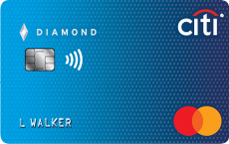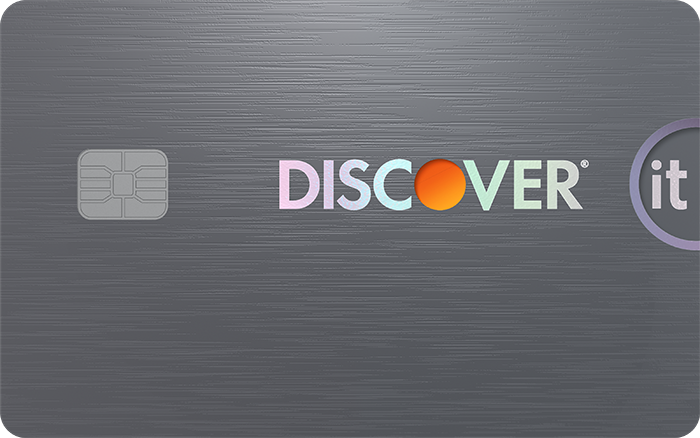Credit card companies ask for your income when you fill out an application, but how much is enough to get approved? If you're a college student who earns $100 per week from a part-time job, can you get a credit card? What about if your only source of income is a Social Security benefit?
The short answer is that the minimum income for a credit card depends on the particular card and your personal credit history, but you'll need some income to get approved. There is no set-in-stone minimum, but here's what you need to know about income and credit card approval before you get started.
How income affects credit card applications
Broadly speaking, there is no minimum income requirement to get approved for a credit card, as long as your income could easily cover the minimum payments on a relatively small credit line. However, your income will help the credit card issuer set your limit, which can not only impact your spending power but can have credit scoring implications as you use your credit card.
With some forms of debt (like mortgages), there are pretty clear income guidelines. But with credit cards, it's a little less clear. Credit card issuers are legally required to ask applicants for their income, and to use that stated income to verify the borrower can afford their monthly payments. But there aren't any set-in-stone guidelines.
TIP
Credit card issuers use different methods of determining their minimum monthly payments, and borrowers can have significantly different interest rates. So a $1,000 credit line can have very different monthly payment requirements on two different cards.
That said, credit card companies typically use these factors to set a credit limit (or open an account):
- The borrower's stated income
- The borrower's credit score
- Other open credit lines
- Other loan balances
- Debt payment amounts (like mortgage or rent payments)
Credit card issuers won't thoroughly investigate your income like a mortgage or auto lender would. For example, it's rare for a credit card company to ask to see your W-2s. As long as you have some income, the biggest factor in the approval process is your credit score and other credit accounts.
Learn more: How Your Income Affects Credit Card Applications
What is considered income for a credit card?
You can use earned income from employment, self-employment, or independent contractor roles to qualify for a credit card. But here's some good news, especially if your income isn't from traditional sources (like a job).
You can also several other types of income to qualify for a credit card:
- Government payments: Payments you receive regularly can be used to help qualify for a credit card. This includes Social Security retirement and disability payments, just to name a couple examples.
- Retirement income: Distributions from your IRA, 401(k), other qualified retirement accounts, and pension payments can be counted as income.
- Allowances and gifts: If you are 21 or older and regularly receive payments in these categories, and the money is available for debt payment, you can consider it as income on a credit card application.
- Scholarships and grants: College students, take note. If you get scholarship or grant funding in excess of your required expenses like tuition, you can use it to qualify for a credit card.
If you're under 21, but at least 18, the rules are a little different. Income you include must be yours, so allowances, gifts, and third-party income cannot be considered. You'll essentially need personal income from a job, or scholarships and grants that justify the credit line.
Learn more: Should You Update Your Income With a Credit Card Issuer?
Can you get a credit card with no income?
The short answer is "sort of," but it's become much more difficult in recent years to get a credit card with no income. Prior to the passage of the CARD Act in 2009, it was much easier for credit card companies to give cards to people with no income. This was especially true for college students -- most people who attended college before the CARD Act went into effect will remember the credit card companies soliciting students to apply outside of the student center. Not anymore.
Having said that, if you don't have income, here are a couple of ways to get a credit card:
- Be an authorized user: If you don't have income, one potential solution is to convince someone else to add you as an authorized user, such as a parent.
- Use someone else's income to qualify: In 2013, the CARD Act was amended so applicants 21 and older can include someone else's income (say, a spouse), as long as they have reasonable access to that income.
Learn more: How to Find a Credit Card for Students With No Income
If you're a student looking for a credit card that's a good match for your lifestyle, take a look at a few we recommend below to see if one might be a good choice. You can also check out our full list of the Best Student Credit Cards for more.
Do you need income to get a secured credit card?
A secured credit card is one that requires a refundable security deposit to open. It can be a good way to start building or rebuilding credit. But there's a popular misconception that you can get a secured credit card with no income since you're required to put down a deposit to open the account.
A deposit does make it easier to overcome a lower credit score on a credit card application. But secured credit card issuers generally want to see that a borrower has income. Aside from the deposit, a secured card isn't treated much differently (legally speaking) than a standard credit card.
If you're looking for a secured credit card to help build your credit, take a look at a few of our favorites below. Our list of the Best Secured Credit Cards has more options you might like too.

|

|

|
|
Bank of America® Customized Cash Rewards Secured credit card |
Citi® Secured Mastercard® |
Discover it® Secured Credit Card |
|
Rating image, 4.50 out of 5 stars.
4.50/5
Our ratings are based on a 5 star scale.
5 stars equals Best.
4 stars equals Excellent.
3 stars equals Good.
2 stars equals Fair.
1 star equals Poor.
We want your money to work harder for you. Which is why our ratings are biased toward offers that deliver versatility while cutting out-of-pocket costs.
|
Rating image, 3.75 out of 5 stars.
3.75/5
Our ratings are based on a 5 star scale.
5 stars equals Best.
4 stars equals Excellent.
3 stars equals Good.
2 stars equals Fair.
1 star equals Poor.
We want your money to work harder for you. Which is why our ratings are biased toward offers that deliver versatility while cutting out-of-pocket costs.
|
Rating image, 5.00 out of 5 stars.
5.00/5
Our ratings are based on a 5 star scale.
5 stars equals Best.
4 stars equals Excellent.
3 stars equals Good.
2 stars equals Fair.
1 star equals Poor.
We want your money to work harder for you. Which is why our ratings are biased toward offers that deliver versatility while cutting out-of-pocket costs.
|
|
Credit Rating Requirement:
Falling within this credit range does not guarantee approval by the issuer. An application must be submitted to the issuer for a potential approval decision. There are different types of credit scores and creditors use a variety of credit scores to make lending decisions.
Recommended Credit Score required for this offer is: Fair/New to Credit Under(669)
Fair/New to Credit Under(669) |
Credit Rating Requirement:
Falling within this credit range does not guarantee approval by the issuer. An application must be submitted to the issuer for a potential approval decision. There are different types of credit scores and creditors use a variety of credit scores to make lending decisions.
Recommended Credit Score required for this offer is: New to Credit Under(579)
New to Credit Under(579) |
Credit Rating Requirement:
Falling within this credit range does not guarantee approval by the issuer. An application must be submitted to the issuer for a potential approval decision. There are different types of credit scores and creditors use a variety of credit scores to make lending decisions.
Recommended Credit Score required for this offer is: New/Rebuilding Under(579)
New/Rebuilding Under(579) |
|
Welcome Offer: N/A |
Welcome Offer: N/A |
Welcome Offer: Discover will match all the cash back you’ve earned at the end of your first year. |
|
Rewards Program: Earn 3% cash back in the category of your choice: gas, online shopping, dining, travel, drug stores, or home improvement/furnishings and 2% cash back at grocery stores and wholesale clubs on the first $2,500 in combined choice category/grocery store/wholesale club purchases each quarter, then earn 1% 1% - 3% cash back |
Rewards Program: N/A |
Rewards Program: 2% cash back at Gas Stations and Restaurants on up to $1,000 in combined purchases each quarter. 1% unlimited cash back on all other purchases - automatically 1% - 2% Cashback |
|
Intro APR: Purchases: N/A Balance Transfers: N/A |
Intro APR: Purchases: N/A Balance Transfers: N/A |
Intro APR: Purchases: n/a Balance Transfers: 10.99%, 6 months |
|
Regular APR: 28.24% (Variable) |
Regular APR: 27.74% (Variable) |
Regular APR: 28.24% Variable APR |
|
Annual Fee: $0 |
Annual Fee: $0 |
Annual Fee: $0 |
|
Highlights:
|
Highlights:
|
Highlights:
|
Show More
 Show Less
Show Less
|
||
FAQs
-
Yes. You can get a credit card with relatively low amounts of income, but the credit limit you get will be related to that amount (Higher incomes tend to get higher limits, but not always).
Technically there is no minimum income, although credit card companies are legally required to ensure the applicant's income will be sufficient to support the card's monthly payments. They will also look at other factors like your credit score.
-
No. It may sound tempting to lie about your income to improve your chances of approval, or to get a higher credit limit, but this is a bad idea. In practice, credit card companies rarely verify an applicant's income (it's most common with applicants under 21). However, lying on a credit application is fraud and can result in serious fines and/or jail time if you're caught.
-
Yes. Credit card applicants can include income from disability benefits, including:
- Supplemental Security Insurance (SSI)
- Social Security Disability Insurance (SSDI)
- Other government payments like Social Security retirement income
Our Credit Cards Expert
We're firm believers in the Golden Rule, which is why editorial opinions are ours alone and have not been previously reviewed, approved, or endorsed by included advertisers. The Ascent does not cover all offers on the market. Editorial content from The Ascent is separate from The Motley Fool editorial content and is created by a different analyst team.